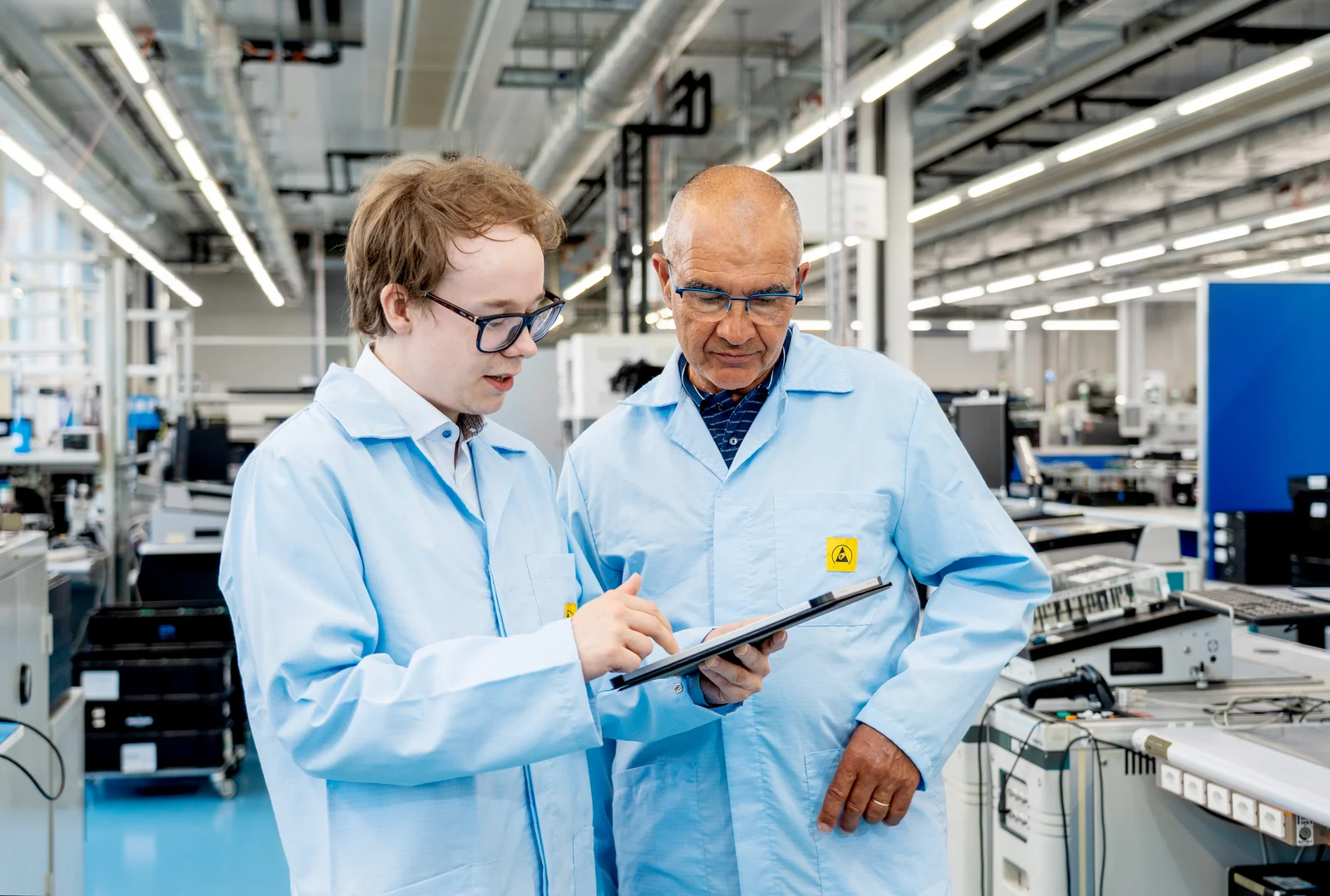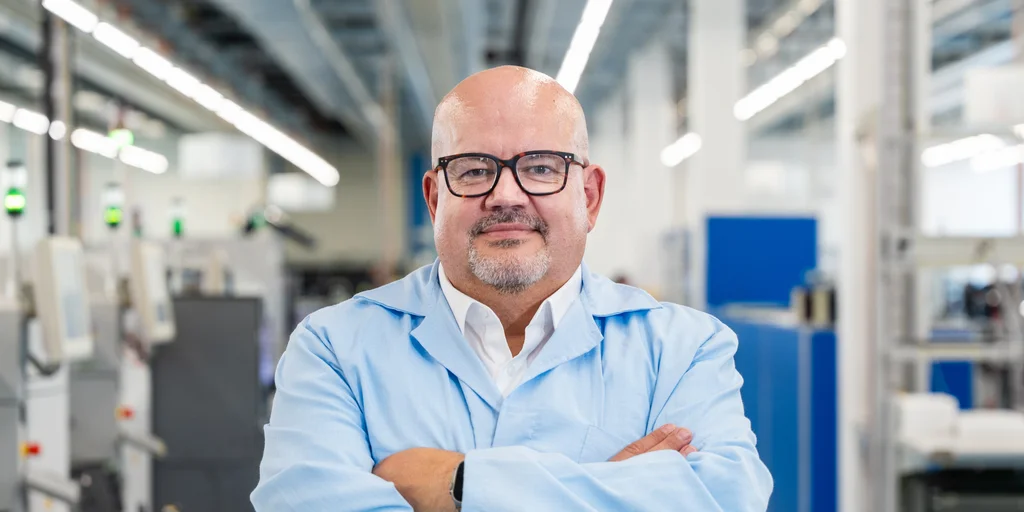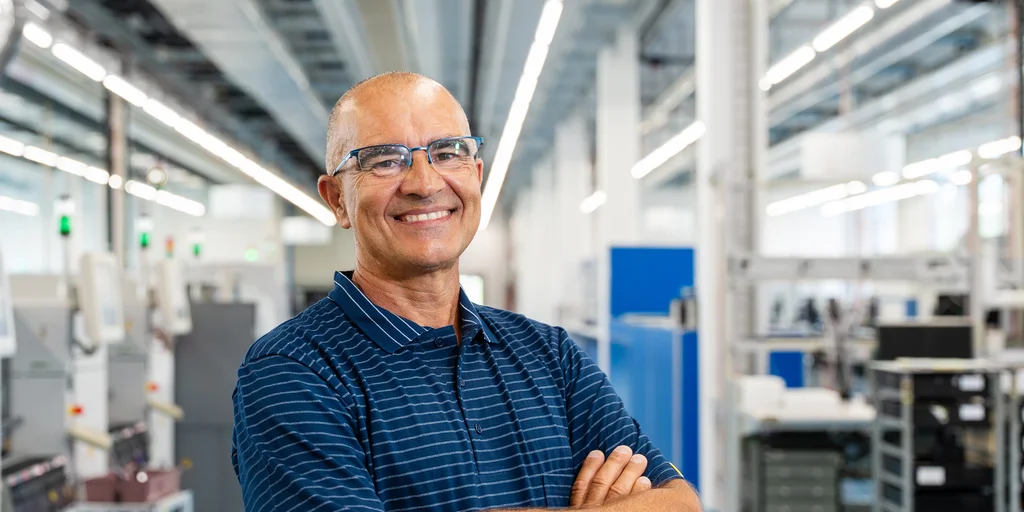Elias Kettunen
Edge AI: Speed and Security in Healthcare Technology
"Responsiveness and security make Edge AI a natural fit for MedTech."


Elias Kettunen is a Development Engineer and Industrial PhD student at Cicor Nordic Engineering in Uppsala, Sweden. We spoke with him about why Edge AI is becoming an important topic in MedTech, and how to integrate it effectively.
Watch Interview Read Interview More Medical Engineering Expertise Contact
Functional cookies are required. Click here if you have trouble watching the video.
Edge AI in MedTech – Elias Kettunen’s Full Interview
Elias, Edge AI is currently a "hot topic" in healthcare technology. What exactly is it?
In medical devices, Edge AI means that the data is processed directly on the device instead of being sent to a server. This allows for faster reaction times, reduces latency, and helps ensure data privacy, which is critical when dealing with patient information. It is particularly relevant for real-time monitoring or diagnostics, where immediate results can be important.
Why are medical device companies increasingly interested in this approach?
Edge AI offers two key advantages: responsiveness and data security. Devices can process and act on data instantly, which is valuable in many medical applications. Keeping the data on the device also simplifies regulatory compliance, as there is less need for transmitting sensitive information externally. With regulations becoming stricter, this is an important factor for many companies.
What are some of the challenges in integrating Edge AI into medical devices?
The main challenge is understanding the limitations. Edge AI runs on devices with limited computing resources, memory, and energy, so careful optimisation is needed. There is also the regulatory framework, like MDR, to consider – in medical projects, AI integration must meet strict standards and be fully documented. Without proper planning, these requirements can cause delays or redesigns.
"Responsiveness and data security are the two main reasons MedTech companies turn to Edge AI."
How does Cicor support customers in this field?
Edge AI is very dependent on physical hardware, compared to traditional AI. Cicor combines engineering and manufacturing, which allows us to consider the entire system from the start – from AI integration and PCB layout to prototyping and testing. Our team in Sweden has strong expertise in both AI systems and regulatory compliance, and we work closely with other Cicor sites around the globe. This means we can offer both local and international capabilities while ensuring that the solution can be manufactured efficiently.
Can you share an example of a recent project?
One project involved a predictive maintenance platform using accelerometer data to detect anomalies in bearings. While it was not a healthcare technology project, the technical principles were similar. Another example was a digital stethoscope with very limited physical space and budget. In both cases, success depended on rapid iterations and close collaboration between disciplines. Of course, challenges like this always provide a valuable learning experience for everyone involved, which can be put to good use on the next project.
What makes Cicor different in projects like these?
Because Cicor also manufactures the products we develop, we design with production in mind from the beginning. This avoids costly redesigns and speeds up time to market. We also have engineers who work across disciplines, from analog design and embedded systems to AI and compliance, which allows us to create integrated solutions. This multidisciplinary approach is a real strength in complex projects!

"Combining engineering and manufacturing allows us to design with production in mind and avoid costly redesigns."
Where do you see Edge AI heading in the next few years?
I expect broader adoption in sectors that already rely on embedded systems, including medical technology. Potential applications include real-time diagnostics and image analysis. As hardware becomes more powerful and AI tools more efficient, it will be possible to run increasingly sophisticated algorithms directly on small devices.
What excites you most about working with Edge AI and embedded systems?
Edge AI is a fast-developing area and increasingly relevant across engineering. What I find most interesting is that it combines advanced algorithms with very practical constraints. In the real world, you have to work within limits of cost, size, and power, and still deliver a reliable solution. It is a combination of innovation and problem-solving that I enjoy.
Final question – what’s something you can’t do your job without?
Limitless supply of black coffee, a computer running Linux, three monitors and a mechanical keyboard and I’m good to go.
About Elias
Elias Kettunen is a Development Engineer and Industrial PhD student at Cicor Nordic Engineering in Uppsala, Sweden. With a background in analog design, embedded systems, and artificial intelligence, Elias works at the interface between advanced research and practical engineering.

More Medical Engineering Expertise
System Engineering: Compliance Built In
Andreea Matei shows how live documentation and structured processes ensure faster approval and smoother market access.

Miniaturisation: Smaller Devices, Big Impact
Karl-Heinz Fritz demonstrates how advanced PCB technologies enable compact, multifunctional medical devices.

Smart Wearables: From Idea to Production
Dan Negrea shares how Cicor turns wearable concepts into medical-grade devices ready for manufacturing.

Qualification & EMC: Ready for Market Launch
Olivier Roy explains how early risk analysis and accredited testing help medical devices reliably pass the first time.

Medical Engineering at Cicor
Our experts share how Cicor accelerates MedTech innovation – from system engineering and qualification to miniaturisation, Edge AI, and smart wearables. Explore the full campaign to see how we help customers turn ideas into manufacturable, compliant solutions.
Let’s talk about your next MedTech project
Whether you’re developing a new device or scaling up for production, Cicor’s experts are here to support you every step of the way. With our integrated engineering and manufacturing capabilities, we help you bring innovative products to market faster and with fewer risks. Get in touch with us today to start the conversation. We’ll get back to you within 3 business days.